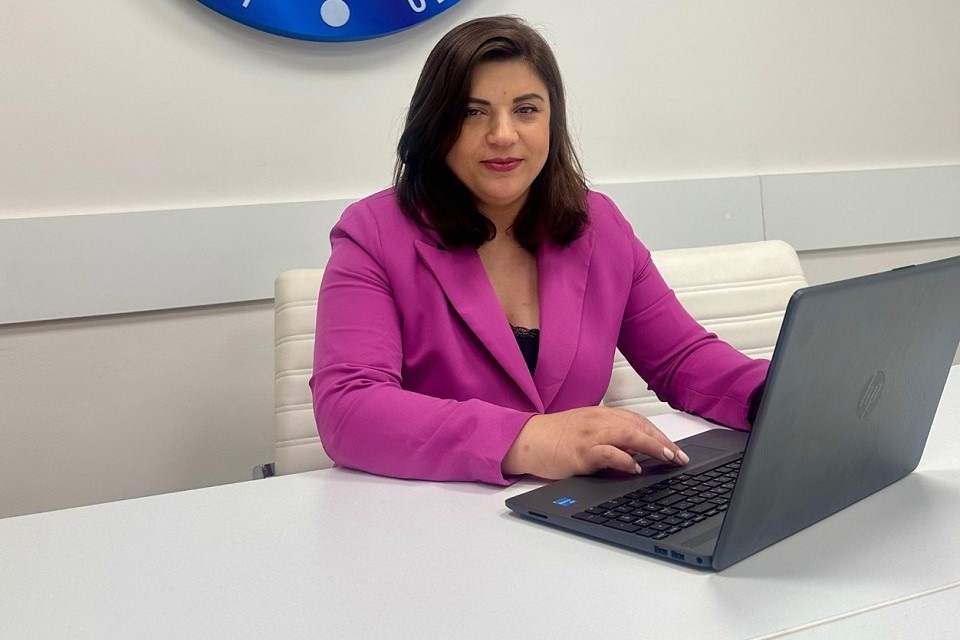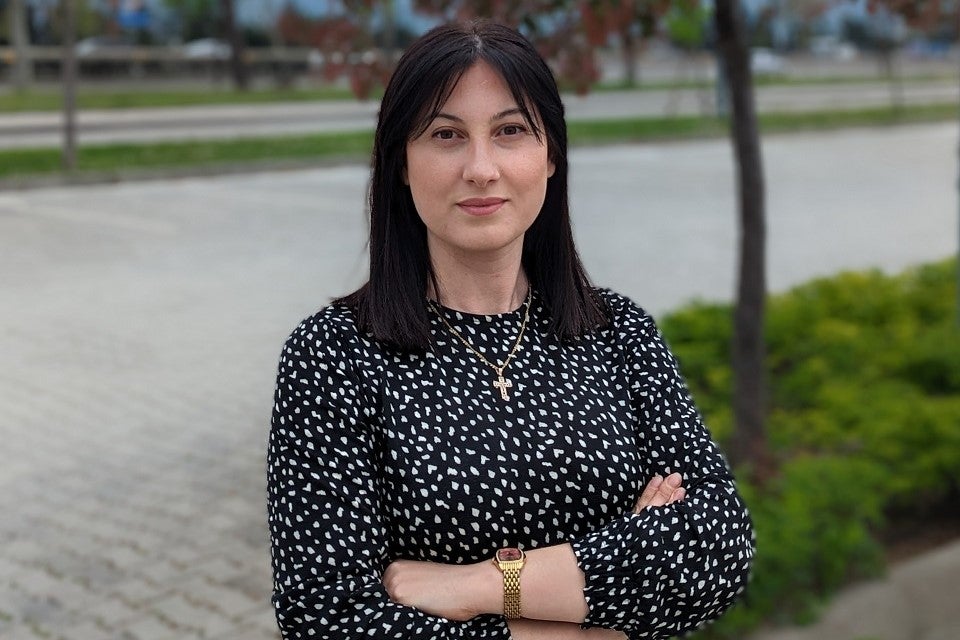School without gender stereotypes
Date:

“I have to respond to violence of various forms and severity every day,” says Marine Jamalashvili, who has been working as a resource officer for educational institutions since 2011, “and I think that with my current knowledge and experience, in some cases in the past, I would have been able to recognize the signs of gender-based and domestic violence faster, properly assess them and immediately help the victim children. Since [undergoing] the UN Women training, my involvement has been more effective. My responsibility as a citizen has also increased, and I am already trying to overcome stereotypes in my daily life.”
Marine is one of the employees of the Office of Resource Officers of Educational Institutions, which manages abuse cases and provides referrals for adolescents with emotional or behavioral difficulties. Since 2021, with the cooperation of UN Women and the financial support of the European Union, the organization has offered the training-of-trainers course “Gender Mainstreaming in Education: Gender-Based Violence and Domestic Violence”. Marine took this course and now continues to teach her colleagues.
In the fight against domestic violence against women, it is critical to work on the elimination of gender stereotypes in schools, raise the awareness of students and educate them with values based on equality. The resource officers are the key link in this process, particularly because, depending on their activities, they serve to create a safe, equal and violence-free school environment, overcome gender stereotypes, prevent domestic violence and respond effectively to it. The UN Women initiative, which served to create a special module and train resource officers across the country, was primarily aimed at breaking gender stereotypes in the school environment and increasing the reporting of cases of violence.
Marine says that the training helps the resource officers to increase their competence and perform their duties more effectively: “The training participants note that they have better understood the essence of gender [and have] realized the inequality that women face at different stages of their lives.”

Another trainer, Kristine Chelidze, who has 10 years of experience as a resource officer, speaks about these positive changes, and now she is the coordinator of the Kvemo Kartli Centre of the Planning and Analysis Division of the same Office.
“After completing the training course, I changed and became more gender-sensitive, not only in terms of professionalism but also in terms of my responsibility as a citizen,” Kristine says. “It makes me happy when I share the acquired knowledge with colleagues and receive impressive feedback. I believe that all such meetings will give results.”
In total, the resource officers trained within the framework of the project have conducted 42 trainings for 837 colleagues throughout the country. The initiative is part of the project “Ending Violence against Women and Girls in Georgia” (EVAWGG), funded by the European Union and implemented jointly by UN Women and UNFPA.